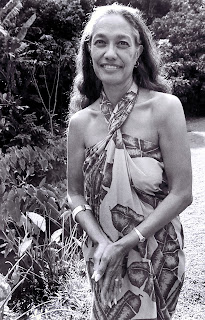 |
The Hawai'i Movie and Television Book: Celebrating 100 Years of Film Production Throughout the Hawaiian Islands. |
Aloha 24 X 100
Just in time for the holidays, Honolulu’s Mutual Publishing has released The Hawai'i Movie and Television Book: Celebrating 100 Years of Film Production Throughout the Hawaiian Islands, co-authored by this publication's prolific writer Ed Rampell.
The handsome, four-color 216-page volume celebrates 100 years of filmmaking throughout the Hawaiian Islands with the focus on Hollywood feature films and television production since 1995, when Rampell co-authored Made In Paradise: Hollywood’s Films of Hawaii and The South Seas.
The Hawai'i Movie and Television Book includes: The screen images of Polynesians and Asians; how South Seas Cinema more than any other film genre is obsessed with the theme of Utopia; where films/TV shows were shot on location in the Hawaiian Islands; a history of the present day Hawai’i Film/TV Industry; and iconic Hawai‘i crime fighters as portrayed on screen. Rampell also places in historic context and reevaluates important movies such as 1995’s Waterworld and 1998’s Godzilla, revealing how they are motion picture parables of global warming and nuclear testing.
The films and television programs are covered in detail, heavily illustrated with archival and contemporary photographs. A valuable reference for film aficionados, a treasure trove of memorabilia for Hawai‘i movie fans, and an important document of Hollywood’s cinematic history with Hawai‘i. Film trivia enthusiasts will have a blast and discover where to go to see the Island locations where popular productions such as From Here to Eternity, Jurassic Parkand The Descendants were made.
Hollywood directors brought their own unique vision of paradise to the screen which receives special treatment in a chapter on the South Sea film genre. There is also coverage of films about Hawaiian life made by Native Hawaiians and other local filmmakers.
Los Angeles-based film historian Ed Rampell, who formerly lived in Hawaii, Tahiti, Samoa and Micronesia, where he covered the Nuclear Free and Independent Pacific and Hawaiian Sovereignty movements for ABC’s “20/20”, Radio Australia, Radio New Zealand, Honolulu Weekly, etc., is now one of L.A.’s most prolific reviewers, covering film/theater/opera for JEstherEntertainment.com, as well as HollywoodProgressive.com, Legends and Legacies, The Daily Dissident, People’s World and The Progressive Magazine.
Rampell previously co-authored Made In Paradise: Hollywood’s Films of Hawaii and The South Seas and Pearl Harbor In The Movies with Luis I. Reyes, who also co-wrote Hispanics in Hollywood. Rampell is also a co-founder of the South Seas Cinema Society, an Oahu-based fan club/film society.
For more information about The Hawai'i Movie and Television Book: Celebrating 100 Years of Film Production Throughout the Hawaiian Islands,including a rave review by Honolulu’s top entertainment reporter, or to order copies see Hawai'i Movie Book.


